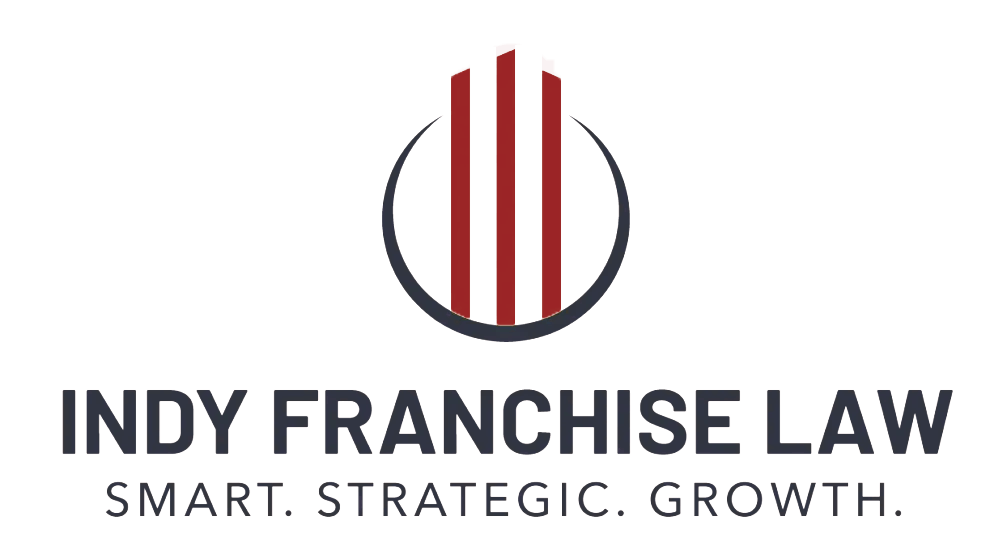For most of us, the American Dream of today isn’t about getting a job with a good company and retiring with them 35 years later with a big ‘thank you’ and a shiny gold watch.
Nope. Those days are clearly gone. (It’s almost funny, right?!)
Today’s American Dream is about thinking outside the box. It’s about finding possibility in the most unlikely of places. It’s about grit, determination and some innovative thinking.
For many, that innovation comes in the form of franchise ownership. Young and old alike are turning to the possibility of franchise ownership to stabilize their finances, make a career change, boost their retirement accounts, or leave a legacy for their children. In a world where corporate work is fiercely competitive and entrepreneurship is risky, at best, many of my clients are finding that franchise ownership is a very happy medium. It gives you the freedom to be your own boss and take charge of your financial future, while still having the support of a sound business foundation that’s been established for you.
The ways that today’s franchisees are funding their franchise dreams is sometimes just as inventive as the concept of franchising itself. Obviously, there’s no one perfect way to fund your investment. There are, however, many options to choose from. And because there are so many routes available to you, I thought it might be helpful to break them down.
In-House Financing
According to the SBA, in response to the credit shortfall and economic downturn of the last decade, many franchisors have established in-house franchise financing for qualified new or multi-unit franchisees. That means that you may be able to finance your investment directly through your franchisor. Often, these in-house financing programs include perks such as reduced royalty fees or lower license fees. However, that also means that your business and your bank are essentially the same entity, which can be risky. Before you finance a franchise investment in-house, do your due diligence in researching their financing policies and procedures. This is also where it will be critical to speak with other franchisees that have used the in-house financing option before and a good franchise attorney who knows the industry well.
Banks and Credit Unions
I know they’re not exactly our favorite industry these days, but there are still some banks and credit unions out there who are willing to give you a shot. The criteria are just much stricter than they were 10 years ago. There are a couple of points to keep in mind as you approach your bank. First, be prepared to approach more than one. Competition for available financing is intense so don’t be convinced that you’ll be approved by the first banker you speak with. Have a list of at least 3 banks to approach – at least one of them being a credit union. In addition, make sure to compare rates. Loan rates are scattered across the spectrum these days so make sure you’re getting the best deal possible.
SBA Franchise Loans
If you’re not entirely convinced that you’ll qualify directly with a bank, you can also try franchise financing with an SBA loan. These are government-guaranteed loans – specifically for franchisees – to help push the bank over the edge and approve your loan. Working with the SBA can sometimes be the cherry on top, so-to-speak that prospective franchisees need to get the funding they deserve; especially because many of us lack perfect credit these days. We’ve been through some hard times and credit scores and bank accounts didn’t always come out unscathed. An SBA-backed loan can sometimes offset those imperfections. You can visit the SBA’s website for more details.
401(k)’s and Retirement Accounts
An alternative to start-up loans and other credit is to simply use what you already have – namely, your 401(k) or other retirement accounts. Three years ago, Entrpreneur.com did a piece on this growing trend, and it’s still alive and thriving today. While there are many cautionary tales about drawing from your retirement account to fund a franchise, many have done so with huge success and a great ROI. Technically known as the ROBS plan, ERISA and the IRS have approved certain terms by which account holders can tap into their 401(k)’s as an alternative to a traditional small business loan. Be sure to read the rules, carefully, and do your research on the pro’s and con’s. There are both happy and sad stories out there from franchisees who used their 401(k)’s, so take them all into consideration and don’t make a financial decision until you’ve consulted with your franchise lawyer, your accountant and your business coach, if you have one.
Family
For some, franchising and business is a family affair. The popularity of this trend seems to be growing, as well. Sometimes, it’s truly a matter of shared interests. Other times, it’s simply about money. If you’re considering borrowing money from family, show them the same respect you would a bank or SBA lender and be prepared with profit projections, financial statements and the FDD, among other items. If you’re asking Grandpa Jo and Auntie Susie for money, show them that you mean business. Many families have also purchased franchises together. Not content to simply fund the investment, many parents have teamed up with their adult children to invest and grow a franchise business together. For some of you, this may be cringe-worthy, so consider this option carefully. Even if your family does have the money to lend, it doesn’t mean that your family dynamic can handle it.
Whichever route you chose to fund your franchise investment, just choose wisely. There are many, many options available and sometimes it’s even a matter of combining a few of them together. Do your due diligence, consult with professionals you trust, and – if nothing else – trust your gut.
Have you funded a franchise in a creative way before? We want to hear about it!









